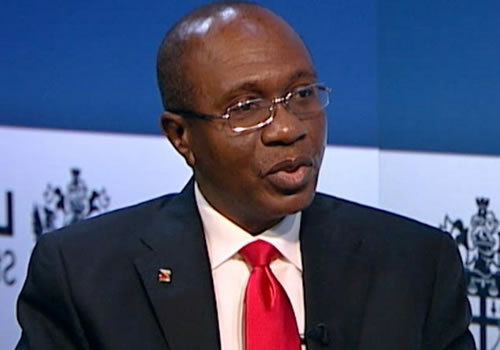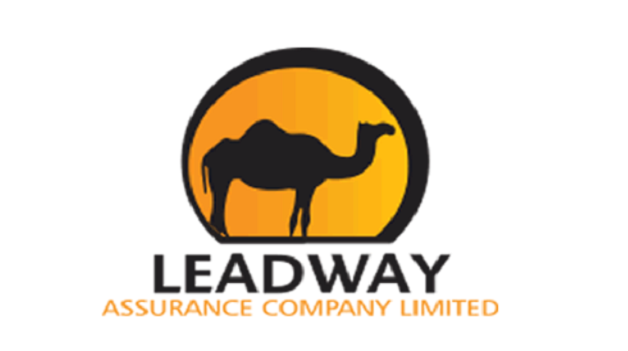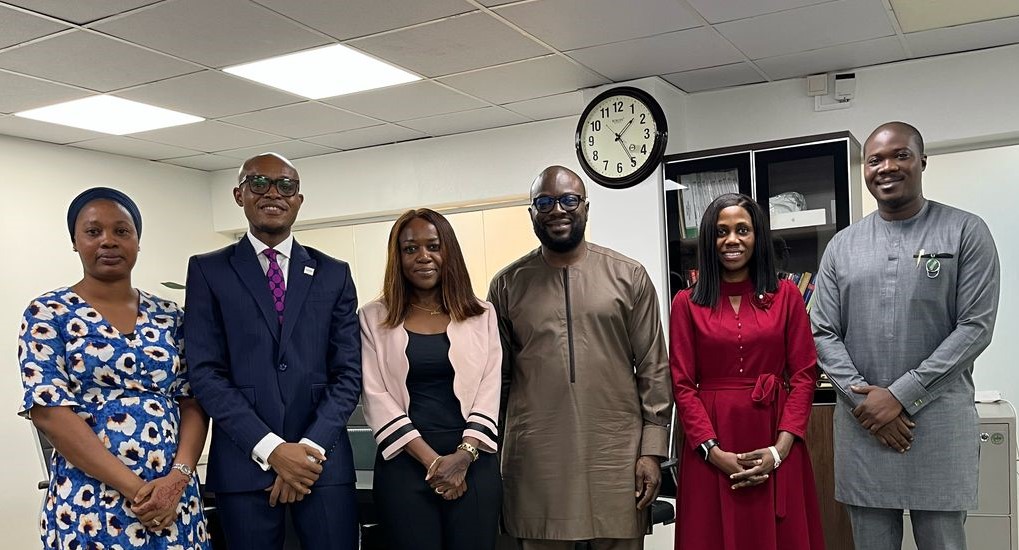E-Financial
Heavy Hitters Give Nigeria The Thumbs Up

By Lukman Otunuga, Research Analyst
October was certainly another positive month for the largest economy in Africa, which has yet again showcased its brawn and resilience on the global stage.
Annual inflation eased for the eighth straight month, while encouraging core economic metrics pointed to further signs of economic stability. Rising global oil prices and recovering domestic oil production has positively impacted government revenues and supported foreign exchange markets.
The overall outlook for Nigeria remains quite encouraging, especially when considering how heavyweights such as the World Bank and IMF have both recently expressed their optimism. As we head into the final trading months of 2017, there may be an increasing focus on the intentions of the Central Bank of Nigeria.
With inflation pressures easing and economic fundamentals stabilizing, speculation is likely to mount over the Central Bank of Nigeria taking action.
Investor confidence towards the Nigerian economy was stimulated in October, after the World Bank projected economic growth to reach 1% this year.
The IMF has also expressed optimism towards the nation by re-affirming its 0.8% growth forecast for the economy this year. According to the fund, growth in 2017 has been fueled by recovering oil production.
In addition to the improving oil outlook, Nigeria’s agricultural sector has also been performing; this is especially significant in view of the fact that the nation is currently on a quest for diversification. While the IMF stated that growth in 2018 may be subdued by population growth, the 1.9% prediction still remains encouraging and continues to highlight the resilience of the Nigerian economy.
Speaking of recovering oil production, Nigeria’s oil output hit 1.8 million barrels a day in August. While this is good news for the nation as oil prices are currently trading above $52 per barrel, production is likely to remain below this level. Although the nation could have the ability to pump more oil, the silent pressure radiating from OPEC’s production cut deal is likely to keep production capped.
While Nigeria is currently exempt from the cartels deal to cut production, there is a possibility that OPEC will request them to join in an effort to rebalance markets.
This poses an external risk to Nigeria, as the Federal government’s 2017 budget is based on a production of 2.2 million barrels per day, at $44.50 per barrel.
A scenario where Nigeria limits production and oil prices start to depreciate, could pose a threat to the nation’s current economic recovery.
While oil markets have found support from geopolitical tensions between the US – Iran and Iraq conflicts, the oversupply concerns are still lingering in the background. Technical traders will continue to observe how WTI Crude reacts above $50.
Although Nigeria’s macroeconomic environment continues to stabilize, there is still a strong need for a robust fiscal policy to complement growth.
It has been said on repeated occasions that the nation’s infrastructure needs a serious makeover. With major roads in poor condition, healthcare and education in need of a revamp, Nigeria has a lot of work on its hands.
It must be kept in mind that solid infrastructure creates a strong and healthy economy. President Muhammad Buhari has recently asked the National Assembly to approve a request to borrow $5.5 billion. With Buhari stating that the loan will be used to provide funding for capital projects, this is likely to improve investor sentiment as the money borrowed, is used for infrastructure developments.
On the monetary side, Godwin Emefiele, the Governor of the Central Bank of Nigeria, is expecting inflation rates to ease rapidly and hit high single-digit rates in the middle of 2018. This sounds like a realistic and achievable prediction, especially when considering how inflation has cooled for the eighth straight month in September, to 15.98%.
The steady increase in foreign exchange supply from the usage of the flexible rate policy, has also played a role in the fall of consumer prices, with inflationary pressures slowing and becoming a theme of the past.
If the nation’s rate of inflation continues to decline and the economic environment improves further, the Central Bank of Nigeria may cut interest rates in an effort to support growth.
Focusing on the foreign exchange outlook, the Naira traded at N363 per Dollar on the parallel market on Friday, 27 October. With the Dollar roaring back on the back of optimism over Donald Trump moving forward with tax reforms, the Naira, like many other Emerging Market currencies, could feel the heat.
Overall, there is growing confidence over Nigeria’s economic outlook, with markets paying very close attention to domestic economic data and the CBN as the 2017 finish line draws near.
Lukman Otunuga is a Research Analyst at FXTM
E-Financial
Leadway Partners Firm to Launch Retail Insurance Product for Women

In line with passion and aspiration of the National Insurance Commission (NAICOM) to achieve financial inclusion among Nigerians especially Nigerian women, Leadway Assurance, has partnered with Wafira Ntaba Limited a marketing firm to launch a bespoken insurance policy for Nigerian women.

The product, Leadway Plan B Insurance policy, comes in simplified and affordable packages for as low as N26,000 per quarter, broadening financial inclusion and income protection for women-led small to medium-sized enterprises and lifestyle protection for women across different social strata in Nigeria.
Speaking at the media launch of the product, Leadway ‘s Director Sales, Retail and Partnership, Kike Fischer, shed light on the market approach for the Plan B product, saying “one uniqueness of the Plan B product is in its single-wide coverage from risks and perils related to auto insurance, healthcare, personal accident, fire, burglary, life insurance and education cutting across its different product packages – SME, Corporate and Premier packages.”
Also speaking, the visioner behind the Plan B Insurance for Nigerian women, Ayona Aguilera Trimnell shared the inspiration behind the products saying, “Plan B is an idea that has been in development for 10 years.
“As I began exploring insurance products aimed at women in other countries, I recognised the need for an insurance product that promotes financial inclusion in Nigeria, specifically for women. I believed we could create something that addresses their unique concerns.
Women need to understand how insurance can alleviate their worries and the benefits of being insured. I have personally enjoyed the advantages of insurance for over fifteen years, and I believe other women should have the opportunity to experience the same benefits.”
She said both partners could simplify the benefits of the plan B insurance product to help even the uneducated, understand and be convinced to secure their future by becoming a policyholder.
According to her, it has been proven and tested that women too buy insurance, but more women need to be aware and get insured.
On the market approach for the Plan B product, she said she was confident that these products would help women of all classes in Nigeria create and protect wealth, recover from economic challenges, pursue their purposes, and lead their families with peace of mind.
E-Financial
Sage Grey Finance Partners with Bank of Industry to Empower MSMEs in Nigeria

Sage Grey Finance Limited has joined forces with the Bank of Industry to provide accessible and affordable financing solutions for Micro, Small, and Medium Enterprises (MSMEs) in Nigeria.
This partnership, announced in Lagos, aligns with the Federal Government’s MSMEs Fund and aims to bridge the $236 billion funding gap faced by small businesses, fostering economic growth and job creation.
Eligible MSMEs can access loans of up to ₦5 million at a competitive 9% annual interest rate, with loan processing completed within five working days.
The initiative also includes SME advisory services to equip businesses with tools for sustainable growth.
Executive Director Jumo Atiba emphasized the critical role of MSMEs in national development, highlighting the partnership’s potential to stimulate entrepreneurship and unlock grassroots economic potential.
This collaboration reflects Sage Grey Finance’s commitment to financial inclusion and sustainable development.
The partnership builds on Sage Grey’s history of impactful initiatives, including a $200 million gas processing plant project and youth empowerment programs.
By addressing the challenges of financial exclusion, this collaboration is set to drive inclusive economic progress across Nigeria.
E-Financial
Four Red Flags Nigerians Ignored until CBEX Crashed- DUBAWA

It has not been a pleasant week for thousands of Nigerians who have again fallen for another money scam.

According to DUBAWA, a West African independent verification and fact-checking project, several persons on various social media platforms have begun to count their losses as CBEX, a popular digital asset trading platform, reportedly wiped out over N1.3 trillion from Nigerian investors’ accounts.
The platform collapsed after funds disappeared from users’ wallets, withdrawals were postponed, and communication channels were locked.
Taiwo Owolabi, a security analyst, recently released an analysis showing how investors’ funds were diverted through funnel wallets and finally into a central wallet, which now holds a total of $857 million in USDT.
The security expert concluded that CBEX was just another Ponzi scheme.
When CBEX promised a mouth-watering 100 per cent return on crypto investments in 30 days, many Nigerians rushed to invest just like they did with the defunct MMM.
However, despite the crash, CBEX has asked some investors to pay $100 and $200 verification fees to access partial withdrawals.
Now that the chips are down, it’s time to ask: “How did we not see this coming?”
Below are four red flags about CBEX that investors ignored.
- No regulatory approval
CBEX operated without registration or approval from the Securities and Exchange Commission (SEC) or the Central Bank of Nigeria.
Still, many Nigerians invested, assuming legitimacy because the platform looked flashy. This has become a pattern, as in previous cases where Nigerians got duped, the platforms were unregistered.
SEC has since warned Nigerians against investing in unregistered online forex and digital asset platforms, saying that operating such businesses without registration is now illegal under the new Investment and Securities Act (ISA).
Lesson: Always verify a platform’s regulatory status before putting your money in.
- Anonymous founders
CBEX’s website and Application did not list identifiable owners or executives. To gain credibility, CBEX masqueraded as a crypto platform, talking about “blockchain,” “trading bots,” and “AI-powered systems.” However, it had no verifiable trades or links to legitimate crypto exchanges. It used tech jargon to mislead its users.
Lesson: Transparency is a minimum requirement. If you don’t know who runs it, don’t trust it.
- Unrealistic returns on investment, withdrawal issues
While there is no ideal return on investments (ROI), excessively high ROIs or ones that appear too good to be true are usually a call for caution.
CBEX promised investors returns of up to 100 per cent in 30 days. That looks like a classic Ponzi red flag.
As seen in the past, these kinds of returns are unsustainable, but they remain effective bait that can appeal to anyone’s greed.
At first, CBEX worked. Users were getting paid even though Owolabi claimed the platform initially used one investor’s money to pay another until it could not.
Just before the crash, many users reported delays in withdrawing their funds. CBEX blamed this on “system upgrades” and “network issues,” which is a tactic common with failing schemes.
Lesson: High, guaranteed returns are a red flag, and consistent withdrawal delays indicate that the system is drying up. That’s usually when the exit strategy begins.
- Influencer endorsements and peer pressure
The Fear Of Missing Out (FOMO) does not respect age, especially when influencers, friends, and families are involved. However, the misuse of trust through misinformation is common in fraud schemes.
CBEX’s biggest marketing weapon was social media hype and word-of-mouth pressure. The platform relied heavily on trust networks.
From WhatsApp statuses to Facebook pages and TikTok videos, CBEX grew viral through a coordinated network of testimonials. People shared real and fake proof of payment screenshots and emotional success stories.
When friends and family members innocently vouched for it, people ignored other red flags and pumped money into the scheme.
Lesson: Social proof is not due diligence. Always investigate platforms independently, even if people you trust are involved.
Conclusion
CBEX’s collapse is not new; unfortunately, it may not be the last. DUBAWA urges investors to adopt a fact-checking mindset when approached with financial opportunities. Scams thrive on ignorance and trust. Our best defence is verification, not hope.
DUBAWA is a West African independent verification and fact-checking project, initiated by the Centre for Journalism Innovation and Development (CJID) and supported by the most influential newsrooms and civic organisations in West Africa to help amplify the culture of truth in public discourse, public policy, and journalistic practice.
It has a presence in Nigeria, Ghana, Sierra Leone, Liberia and The Gambia.

 General News3 days ago
General News3 days agoWorld Bank Announces $800m Support for Nigeria’s CCT Initiative

 Telecom2 days ago
Telecom2 days agoBanks, Telcos Mull New Billing Plans for USSD Airtime Payments

 E-Financial3 days ago
E-Financial3 days agoFour Red Flags Nigerians Ignored until CBEX Crashed- DUBAWA

 E-Business2 days ago
E-Business2 days agoNIPOST in Intensive Care, Needs Reforms Need to – Kekemeke

 Telecom3 days ago
Telecom3 days agoHow Starlink Took over Africa’s Largest Internet Market
- General News3 days ago
MIT MBA Students Explore Digital Innovation at MTN Nigeria

 E-Financial2 days ago
E-Financial2 days agoLeadway Partners Firm to Launch Retail Insurance Product for Women

 General News3 days ago
General News3 days agoNITDA, SecDojo Forge Partnership to Strengthen Nigeria’s Cybersecurity Resilience




























